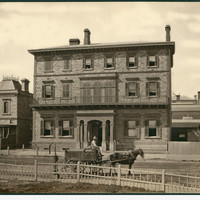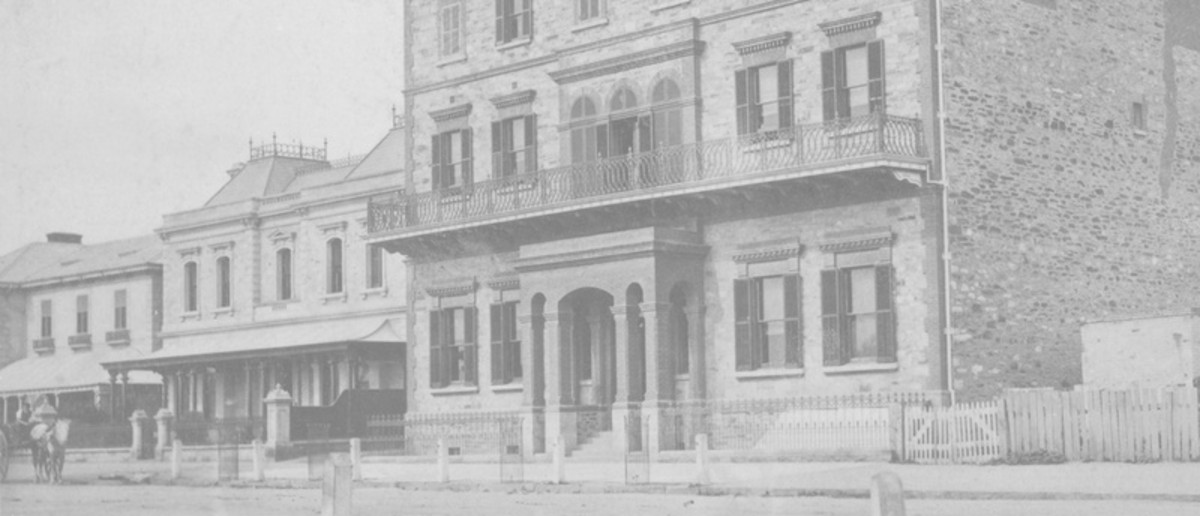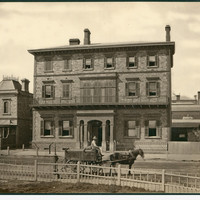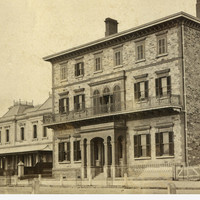Organisation
ContributeModelled on the gentlemen’s clubs that proliferated in London from the eighteenth century, the Adelaide Club resembles bodies established at about the same time in the capital cities of the other Australian colonies.
After the failure of several clubs, in 1863 14 prominent colonists, including John Baker, John Morphett and Arthur Blyth, determined to raise £4000 in £50 debentures to finance a club and build a clubhouse. By October 1864, 120 members had been admitted without election. Virtually all were leaders in the colony, such as George Fife and John Howard Angas, Henry Ayers, Robert Barr Smith, Thomas Elder, James Hurtle Fisher, Walter Watson Hughes and George Mayo. By far the largest group were pastoralists, followed by businessmen, with lawyers and government officials also prominent. Many who joined served in the legislature, including six past, present or future premiers. The majority of members were Anglicans, a few Presbyterian or Nonconformist, with one or two Roman Catholics and Jews. The Club adopted the Grass Tree as its crest, purchased land on North Terrace opposite Government House, and moved into premises designed by a foundation member, Edward Angus Hamilton, in 1864.
By July 1865 membership had reached 125 and in 1920 was 288. This membership reflected the colony’s economy; pastoralists were dominant until World War I, when an increasing number of manufacturers, warehousemen, newspaper proprietors and later businessmen joined them. Numbers steadily grew and in 2001 the Club has some 900 members, some the fifth or even sixth generation of their families to belong. There are also many who have made or are currently making a significant contribution to the state.
The Adelaide Club is unique in Australia. While for a brief period (1877–c. 1900) the Austral Club functioned in Pirie Street in the city, when it closed many of its members, mainly businessmen, joined the Adelaide Club. Thus there has never been a rival club in Adelaide, reflecting the unity of South Australia’s elite. For many years a perception has persisted that the Adelaide Club is not only the upholder of Victorian values and traditions but that it is also the real source of power in the state. The former allegation is frivolous, the latter is untrue.
Media
Add mediaImages

Image courtesy of the State Library of South Australia, SLSA, Sweet Collection: B 10668, Public Domain.



CommentAdd new comment
Quickly, it's still quiet here; be the first to have your say!